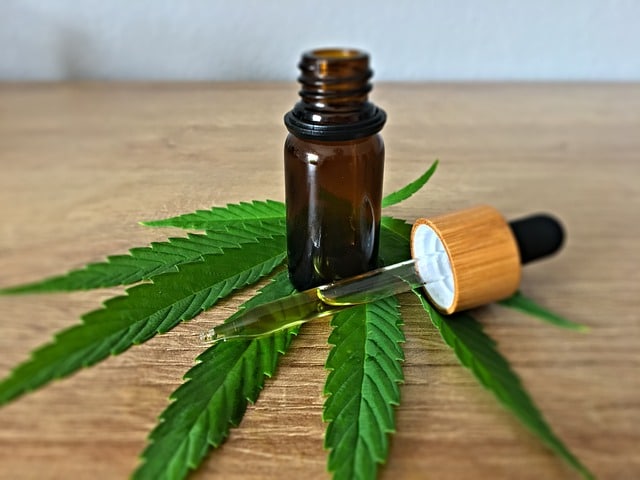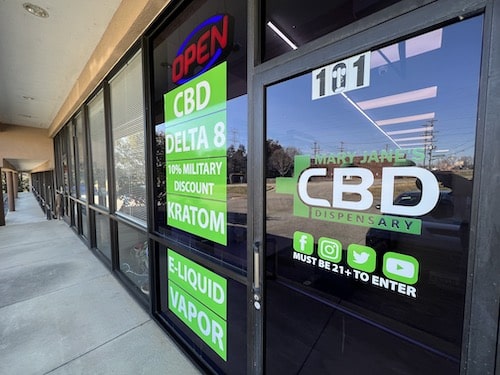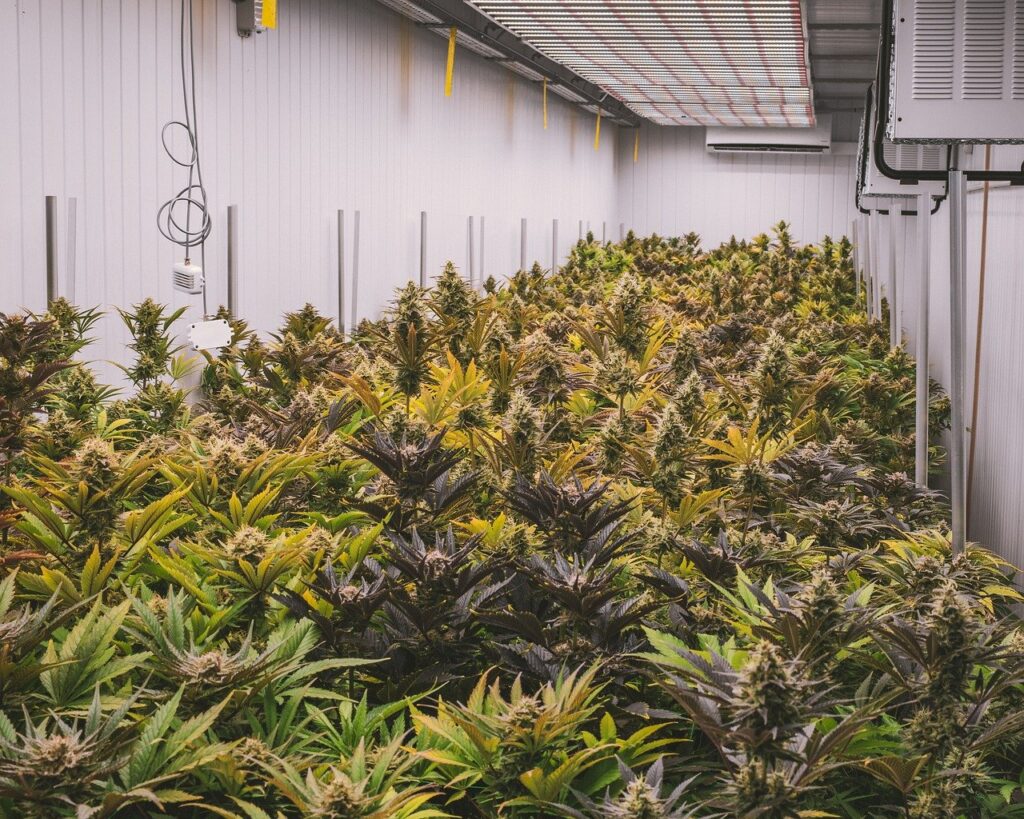
Blog
CBD Oil vs. Opioids: Which Is Safer and More Effective for Chronic Pain Relief?

Chronic pain is a widespread condition that affects millions of people worldwide, causing physical and emotional distress, decreased quality of life, and even disability. Pain management is crucial for patients suffering from chronic pain, and traditional treatment options, such as opioids, are often associated with severe side effects and addiction risks. As such, many individuals are turning to alternative therapies, such as CBD oil, to relieve their chronic pain. In this article, we will explore the differences between CBD oil and opioids and discuss which one is safer and more effective for chronic pain relief.
What Are Opioids?
Opioids are a class of drugs that are commonly used for pain management. They work by binding to specific receptors in the brain, spinal cord, and other areas of the body to reduce pain signals sent to the brain. Opioids can be effective in managing acute pain, such as pain following surgery or injury. However, long-term use of opioids for chronic pain management can lead to tolerance, dependence, and addiction.
Opioids are also associated with a range of side effects, including drowsiness, nausea, constipation, respiratory depression, and cognitive impairment. In addition, long-term use of opioids can lead to a range of health problems, including liver damage, hormonal imbalances, and decreased immune function.
CBD Oil and Pain Relief
CBD oil, or cannabidiol, is a natural compound found in the cannabis plant. Unlike tetrahydrocannabinol (THC), another compound found in cannabis, CBD does not produce a high. Instead, it is believed to have a range of therapeutic effects, including pain relief, anti-inflammatory effects, and anti-anxiety properties.
CBD oil works by interacting with the body’s endocannabinoid system (ECS), a complex network of receptors and neurotransmitters that regulate various functions, including pain perception, immune response, and mood. CBD binds to specific receptors in the ECS, reducing pain signals and inflammation throughout the body.
Research has shown that CBD oil may be effective in relieving various types of chronic pain, including neuropathic pain, arthritis pain, and cancer-related pain. In a study published in the Journal of Experimental Medicine, researchers found that CBD significantly reduced chronic pain and inflammation in mice and rats. Other studies have shown that CBD may be effective in reducing anxiety and depression, two common comorbidities of chronic pain.
CBD Oil vs. Opioids
When it comes to chronic pain management, CBD oil and opioids are two vastly different treatment options. Opioids are highly addictive and can lead to severe side effects, while CBD oil is non-addictive and has minimal side effects.
In addition, CBD oil is a natural remedy that works with the body’s endocannabinoid system to reduce pain and inflammation. In contrast, opioids are synthetic drugs that work by binding to specific receptors in the body, reducing pain signals but also creating a range of side effects.
While opioids may be effective in managing acute pain, such as pain following surgery or injury, they are not a suitable long-term treatment option for chronic pain. In contrast, CBD oil has been shown to be effective in managing various types of chronic pain, with minimal side effects and no risk of addiction.
Side Effects of CBD Oil vs. Opioids
CBD oil and opioids are two very different substances with different effects and potential side effects.
CBD oil is a non-psychoactive compound derived from the hemp plant, which has been found to have many potential therapeutic benefits. It is generally well-tolerated, and side effects are typically mild and temporary. The most common side effects of CBD oil include dry mouth, dizziness, and changes in appetite and mood.
In contrast, opioids are a class of drugs that act on the central nervous system to relieve pain. They can be highly addictive and have a range of potential side effects, including nausea, constipation, drowsiness, confusion, and respiratory depression. In addition to the potential for addiction and abuse, long-term use of opioids can also lead to tolerance and dependence, making it difficult to stop using the drug without experiencing withdrawal symptoms.
Overall, while both CBD oil and opioids can be used to manage pain, they have different mechanisms of action and potential side effects. CBD oil is generally considered to be a safer and less addictive option than opioids, although it may not be effective for all types of pain. If you are considering using CBD oil or opioids for pain management, it is important to discuss your options with a healthcare professional to determine the best approach for your individual needs.
Ways to Utilize CBD Oil for Alleviating Pain
CBD oil can be consumed in a variety of ways, including:
- Sublingual consumption: CBD oil can be placed under the tongue, where it is absorbed directly into the bloodstream. This is one of the most effective ways to consume CBD oil, as it allows for quick absorption and onset of effects.
- Oral consumption: CBD oil can be added to food or drinks, or taken in capsule form. This method of consumption is less effective than sublingual consumption, as the CBD must pass through the digestive system and liver before entering the bloodstream. However, it can still be an effective method of consumption for those who prefer not to use the sublingual method.
- Topical application: CBD oil can be applied topically to the skin, where it can be absorbed through the skin and provide localized pain relief. This method is particularly useful for joint pain or muscle soreness.
- Inhalation: CBD oil can be inhaled using a vaporizer or e-cigarette. This method allows for quick absorption of CBD into the bloodstream through the lungs. However, it is important to note that inhaling CBD oil may carry some risks to the respiratory system, and this method should be used with caution.
It is important to note that the appropriate dosage of CBD oil can vary depending on the individual, the severity of their pain, and other factors. It is best to start with a low dose and gradually increase it until the desired effects are achieved.
Our Final Thoughts
In conclusion, both CBD oil and opioids are potential options for chronic pain relief. However, CBD oil seems to be a safer and more effective choice compared to opioids. Opioids have serious side effects, including addiction and overdose, and they may only provide short-term relief for chronic pain. On the other hand, CBD oil has a lower risk of addiction and overdose, and it may provide longer-lasting relief for chronic pain.
While more research is needed to fully understand the benefits and potential risks of CBD oil, it appears to be a promising alternative to opioids for managing chronic pain. Patients with chronic pain should consult with their healthcare providers to determine the best treatment option for their individual needs. It is also important to note that CBD oil should not be considered a substitute for medical advice, and patients should always follow their doctor’s instructions regarding pain management.
Are You Looking for the Best Cannabidiol Oil on the Market Today?
Are you tired of living with chronic pain and discomfort? Say hello to a more relaxed and happy life with Mary Jane’s CBD Dispensary! Our premium CBD products are made from organic hemp and natural extracts, ensuring every use is a soothing and relaxing experience. Our high-quality products provide you with the relief you need and come in delicious flavors that will leave your taste buds begging for more. With Mary Jane’s, you never have to worry about receiving ineffective or potentially harmful products. We have several locations across multiple states and a convenient online store, so you can easily access the finest CBD vape products on the market. Say goodbye to stress and discomfort and hello to a clearer mind and a happier life with Mary Jane’s CBD Dispensary!
Disclaimer: The materials available on this website are for informational and entertainment purposes only and not for the purpose of providing medical advice. You should contact your doctor to obtain advice with respect to any particular issue or problem. You should not act or refrain from acting on the basis of any content included in this site without seeking medical or other professional advice. The information presented on this website may not reflect the most current medical developments. No action should be taken in reliance on the information contained on this website and we disclaim all liability in respect to actions taken or not taken based on any or all of the contents of this site to the fullest extent permitted by law.












